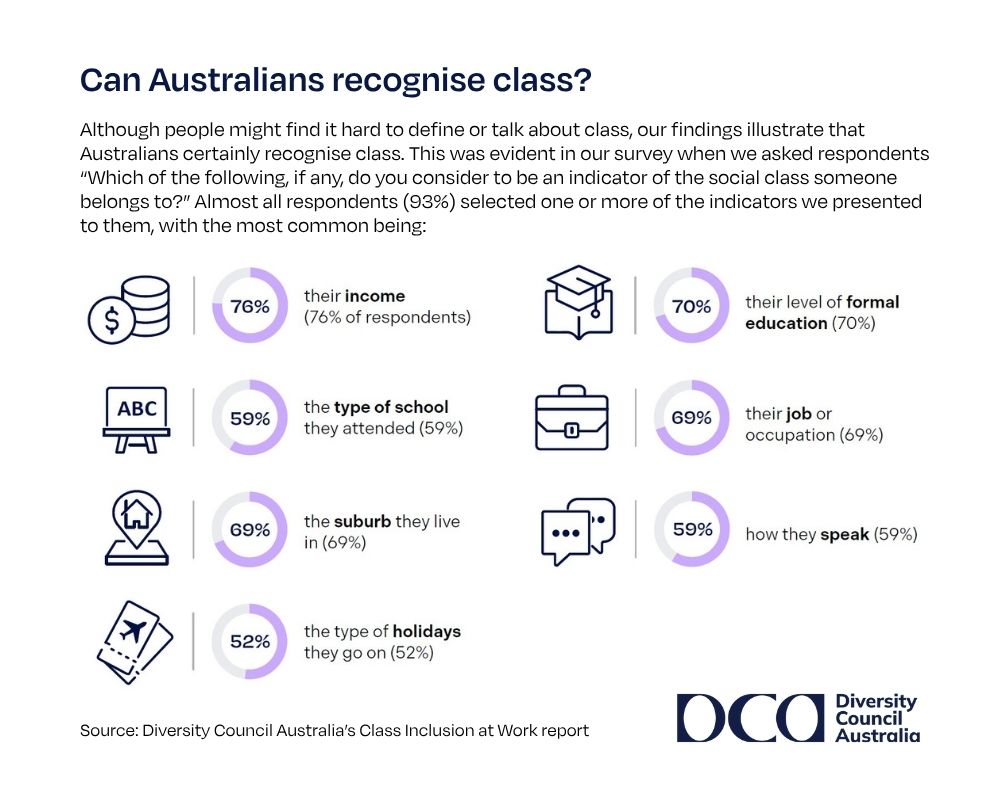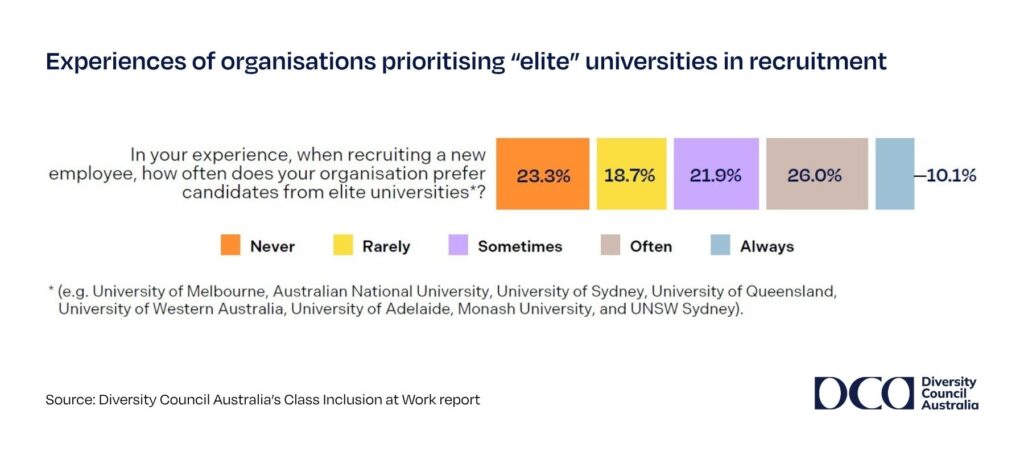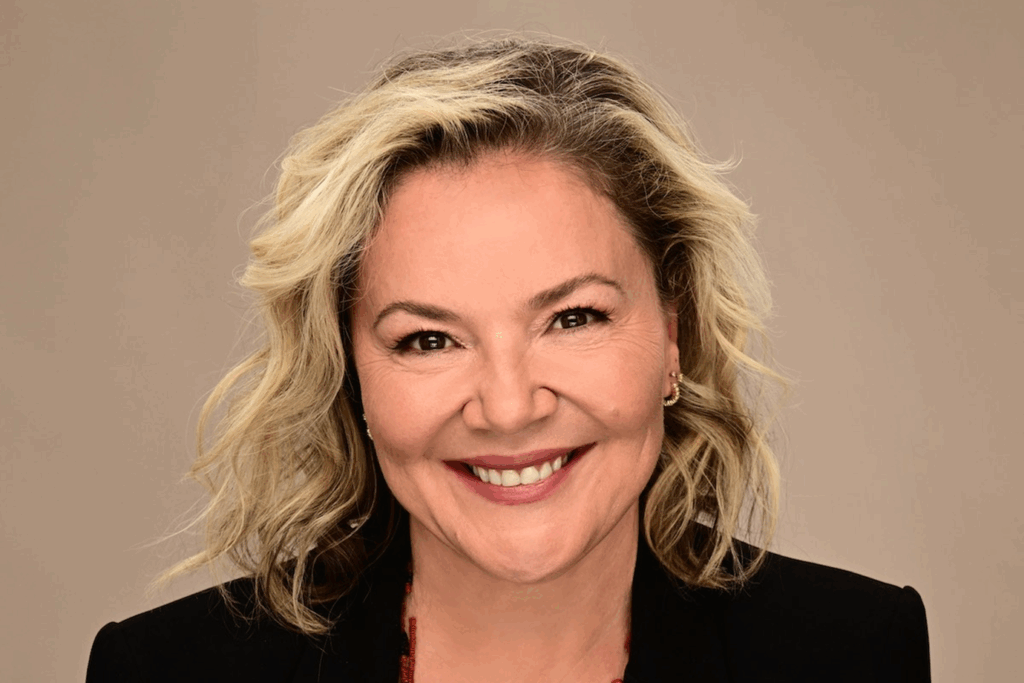Politicians often talk about Australia as the land of the ‘fair go’ but new research reveals that class bias remains rife in Australian workplaces.
Diversity Council Australia (DCA)’s Class Inclusion at Work report, released today, found that 58 per cent of HR practitioners say their organisation prefers candidates from “elite” universities. Examples of elite universities in Australia include the Australian National University, University of Melbourne and University of Sydney.
In some instances, a qualification from an elite university was used to filter out applicants in the recruitment process.
The figure comes even with little evidence candidates from elite universities perform better in their roles.
“Your social class shouldn’t determine your career opportunities, yet our research shows class bias still impacts who gets ahead and who is left behind,” DCA CEO Catherine Hunter said.
“At a time of rising cost-of-living pressures, skills shortages and economic uncertainty, organisations that allow class to influence hiring not only entrench disadvantage, they risk overlooking valuable talent that can boost productivity and drive recovery.”
The report from DCA highlights how job seekers are marginalised by their social class and whether they attended an elite university.
One participant reflected on being told they had attended a “country hick” university during a recruitment process, while another described a manager dismissing a job candidate because they were “a bit rough for us”.

Class marginalised workers less likely to experience workplace inclusion
According to DCA, class marginalised workers are significantly less likely to experience inclusion at work. Twenty-one per cent of class marginalised workers said their team is non-inclusive compared to just five per cent of their class privileged peers.
Meanwhile, 63 per cent of respondents disagreed with the claim that “in Australia, anyone can get a job and do well in their career regardless of their class background.”
Only seven per cent agreed Australia is a class-free society.

When it comes to diversity and inclusion in the workplace, it’s clear that social class is an overlooked area.
Data on social class is often limited, with 60 per cent of organisations claiming to collect class-related data – but this is often restricted to postcode or educational level.
Meanwhile, 86 per cent of organisations who did collect class data said it wasn’t being considered in diversity and inclusion initiatives.
“In 2020, DCA’s Class at Work research placed social class on the workplace inclusion agenda,” Catherine Hunter said.
“Five years on, with economic inequality at a 20-year high, class continues to impact people’s lives in profound ways, from access to employment, to pay, career progression and professional networks.
“This new report gives employers an evidence-based framework to understand and address class inequality in the workplace.”
The report shows class marginalised employees who work in inclusive organisations are more likely to say their team is innovative and willing to work hard. They are also more likely to report access to career development opportunities and feel their work positively impacts their mental health.
Hunter said employers should focus on practical actions across recruitment, development, progression and workplace culture when considering social class.
“Our hope is that Class Inclusion at Work will spark new conversations about class in Australia and, importantly, inspire workplaces to act so that people from all class backgrounds can thrive and contribute to a more just and equitable nation.”
Feature image: DCA CEO Catherie Hunter.


